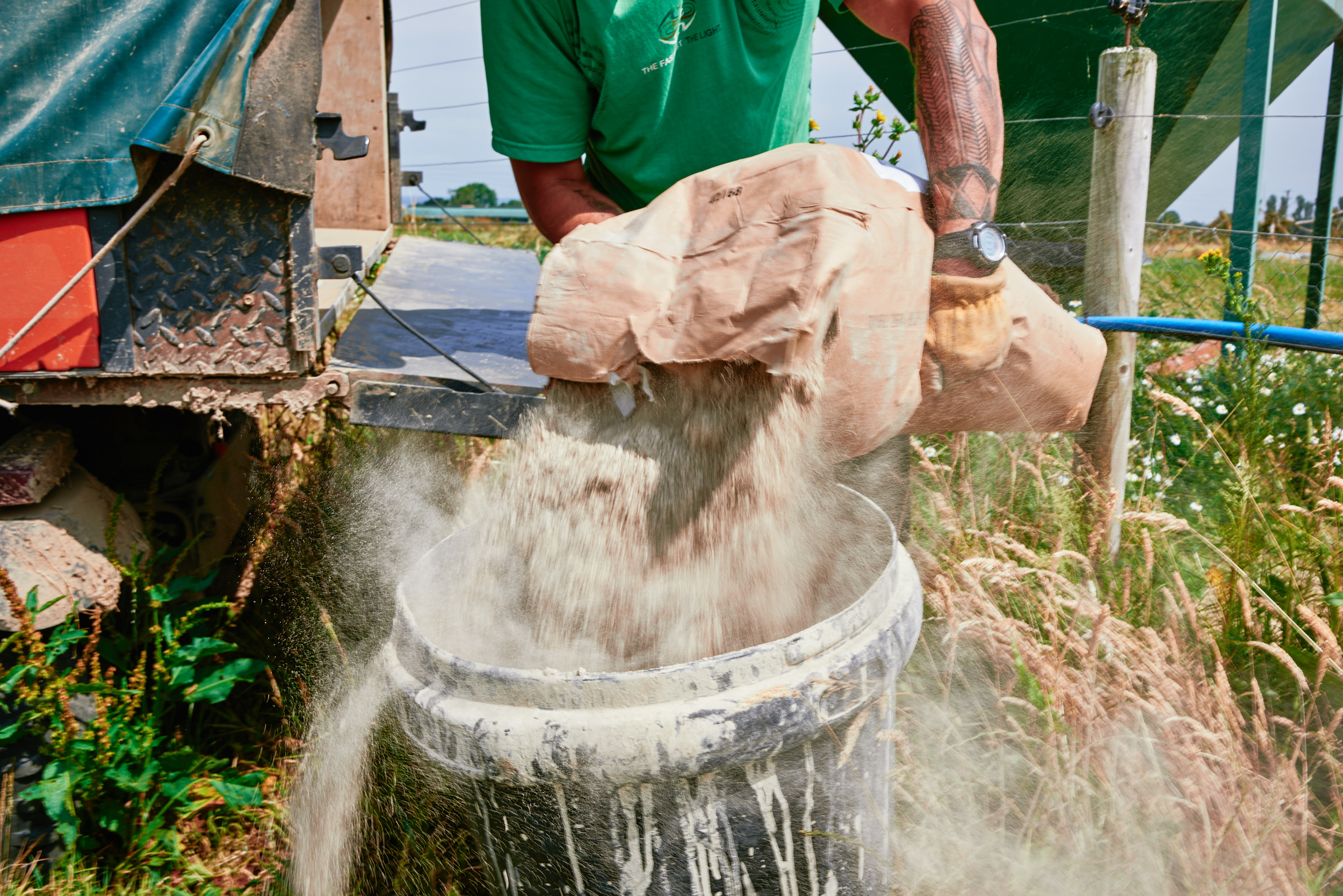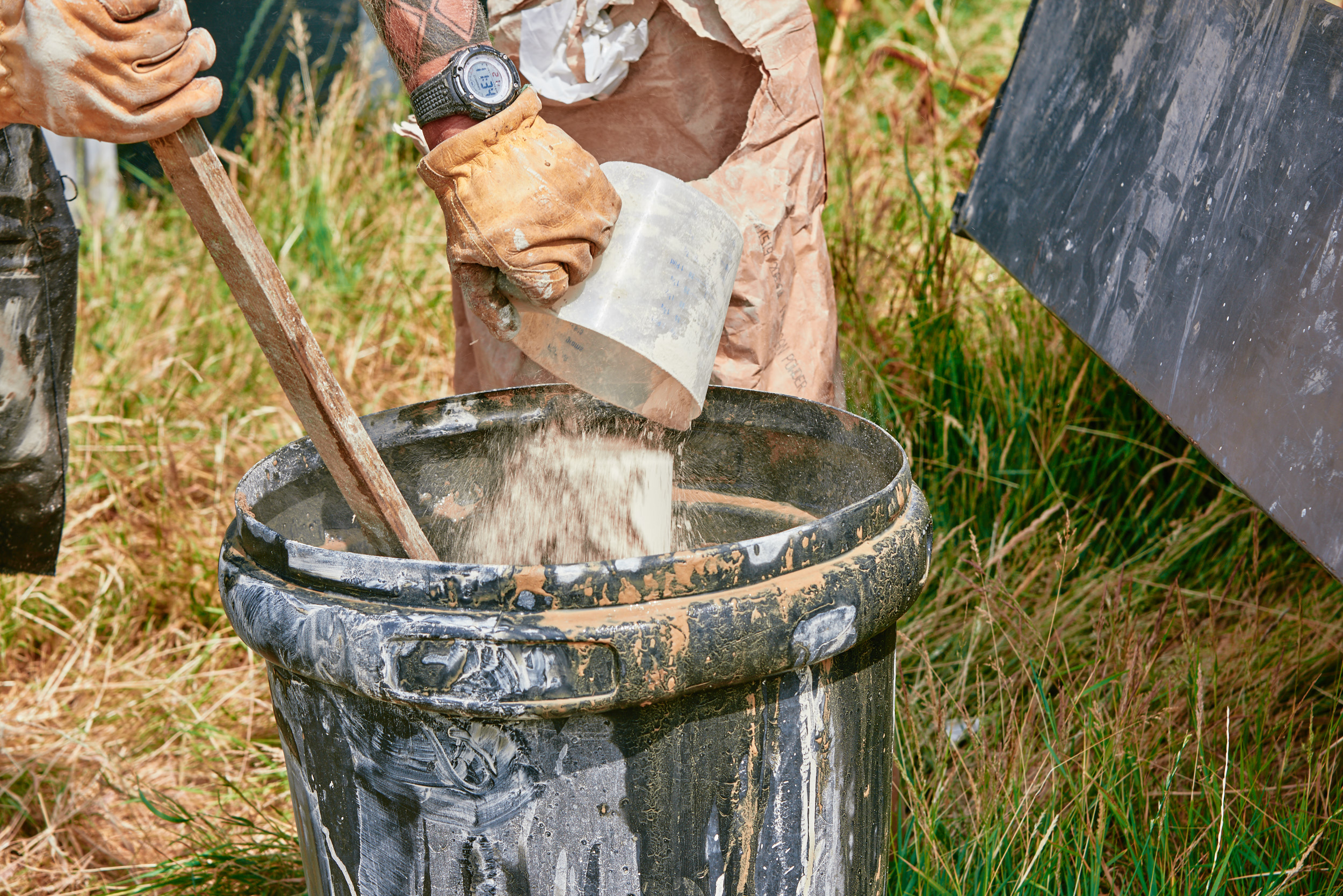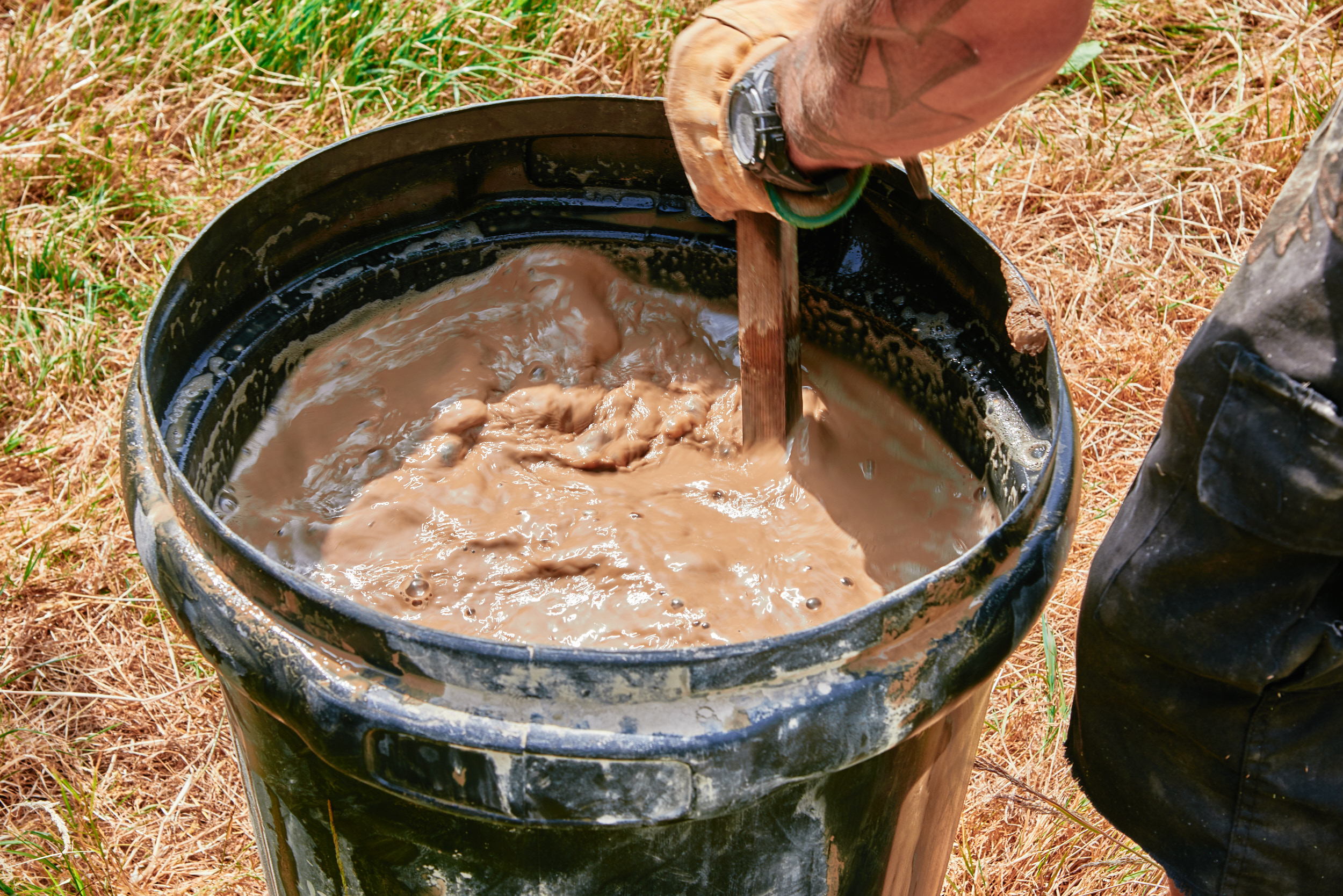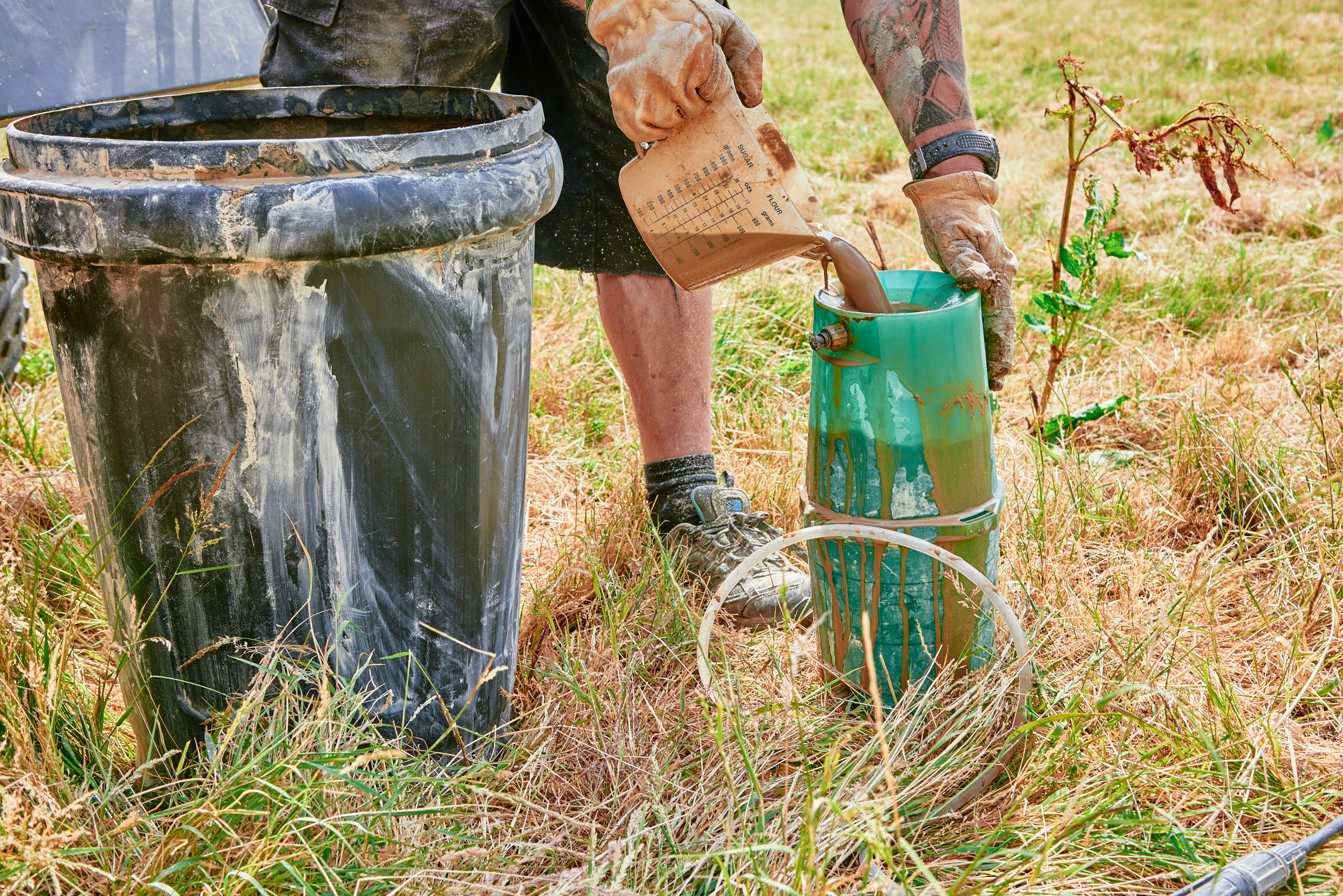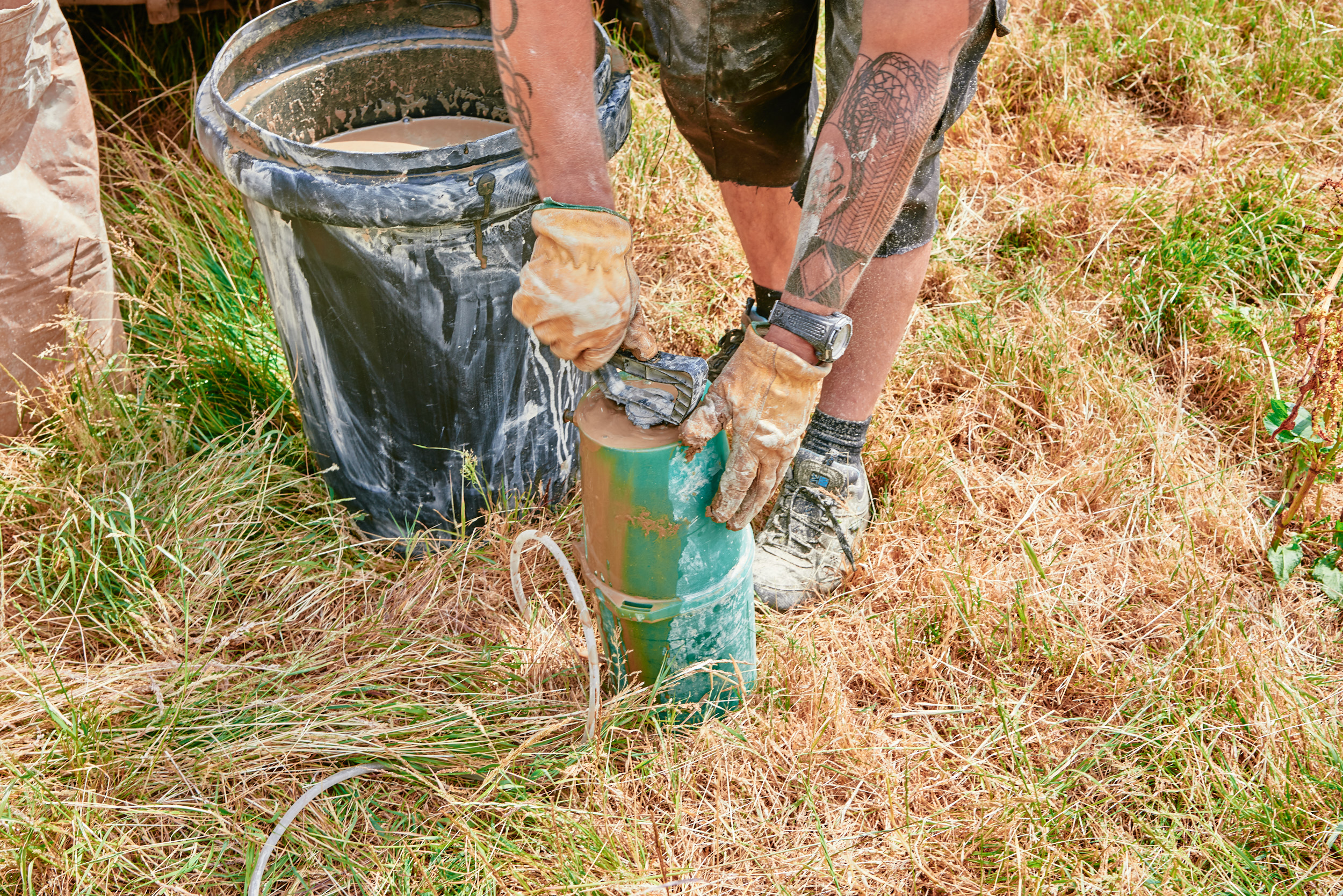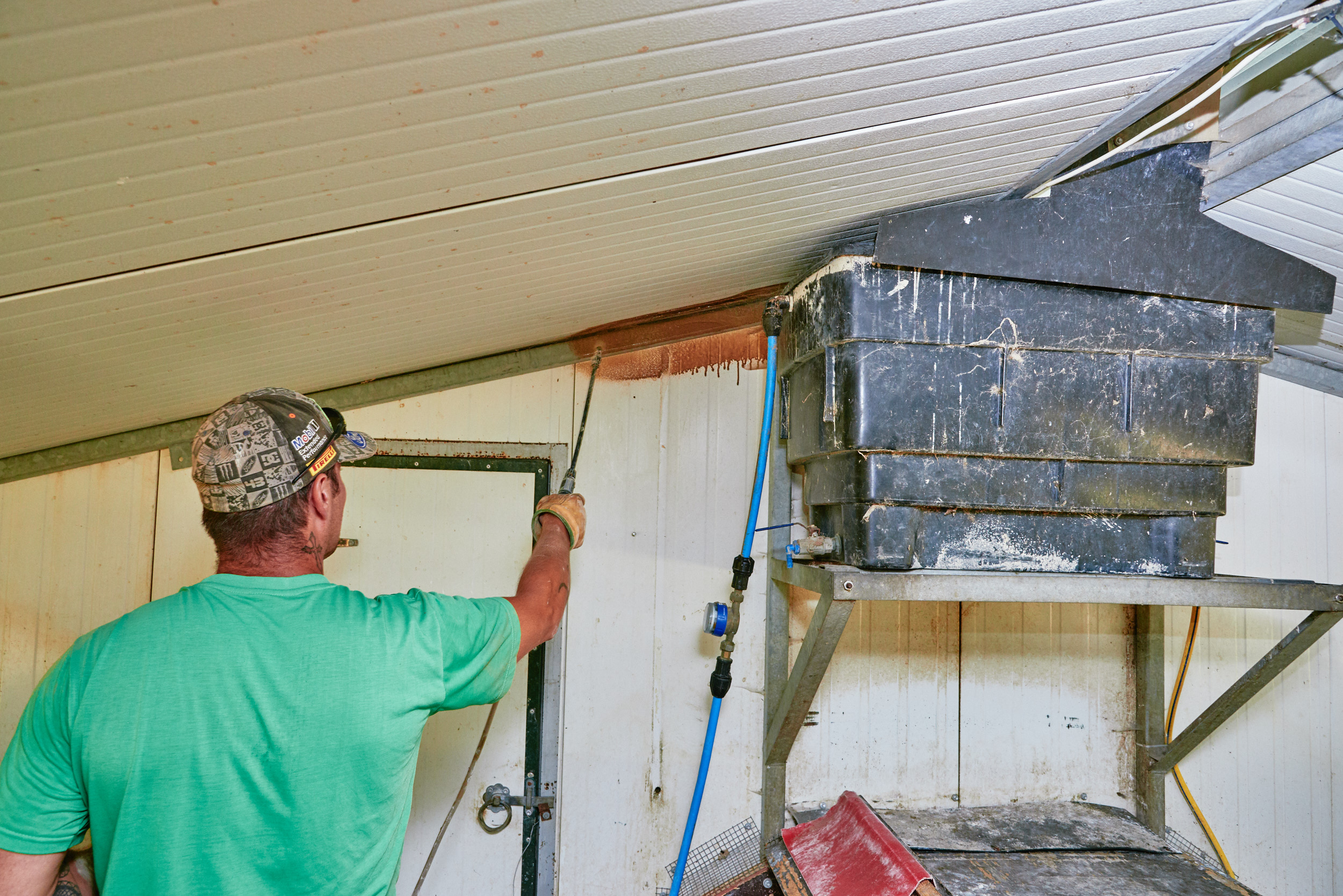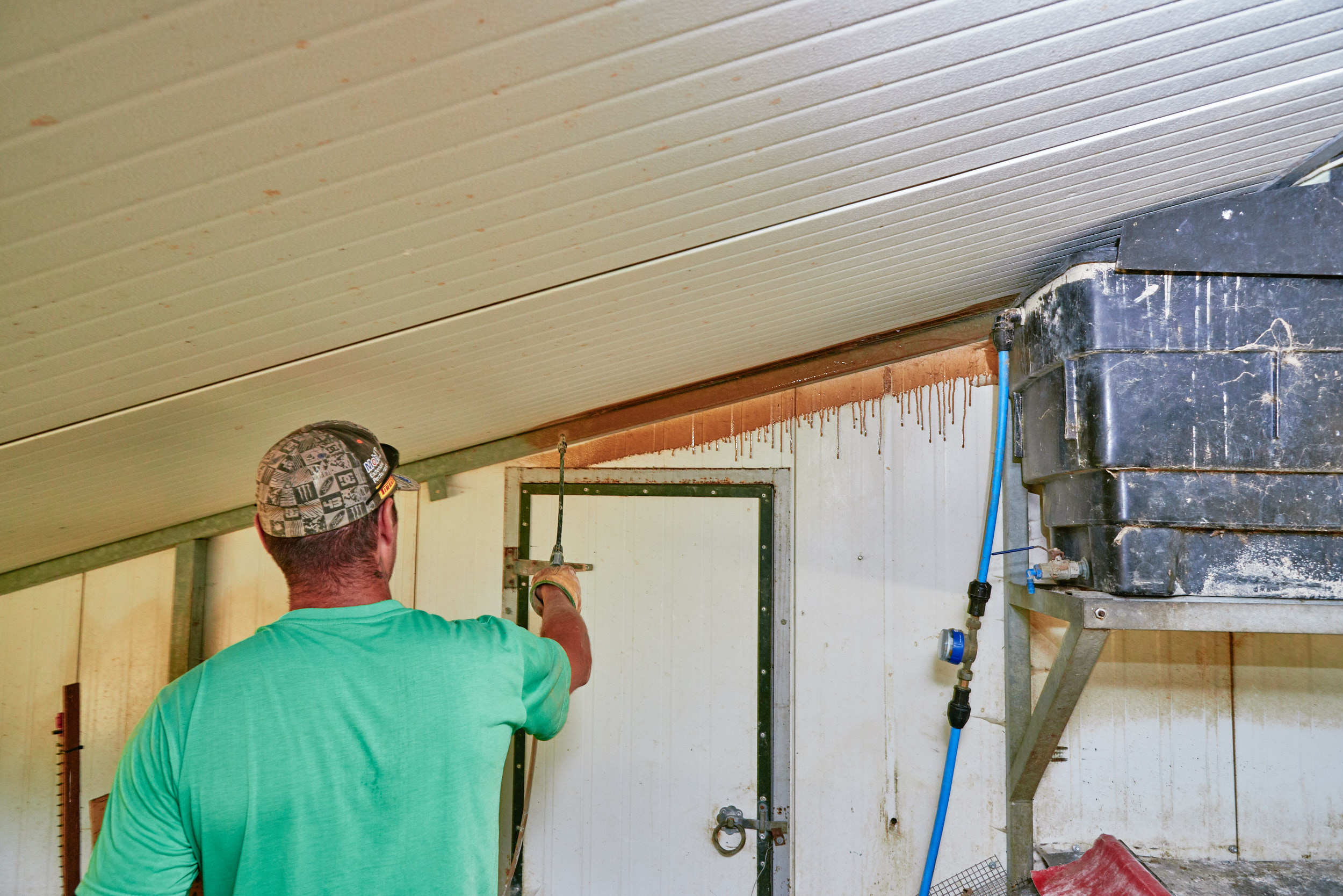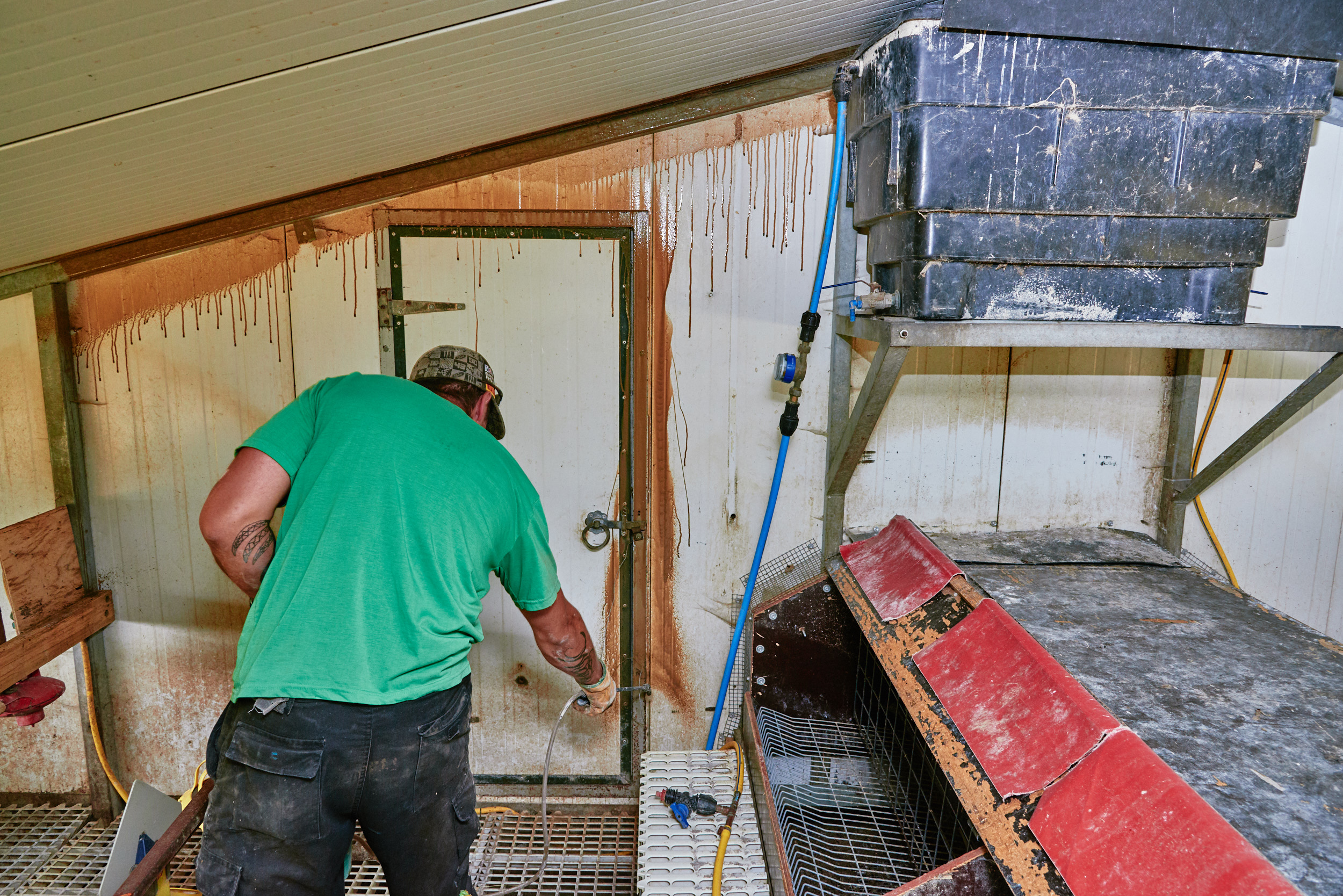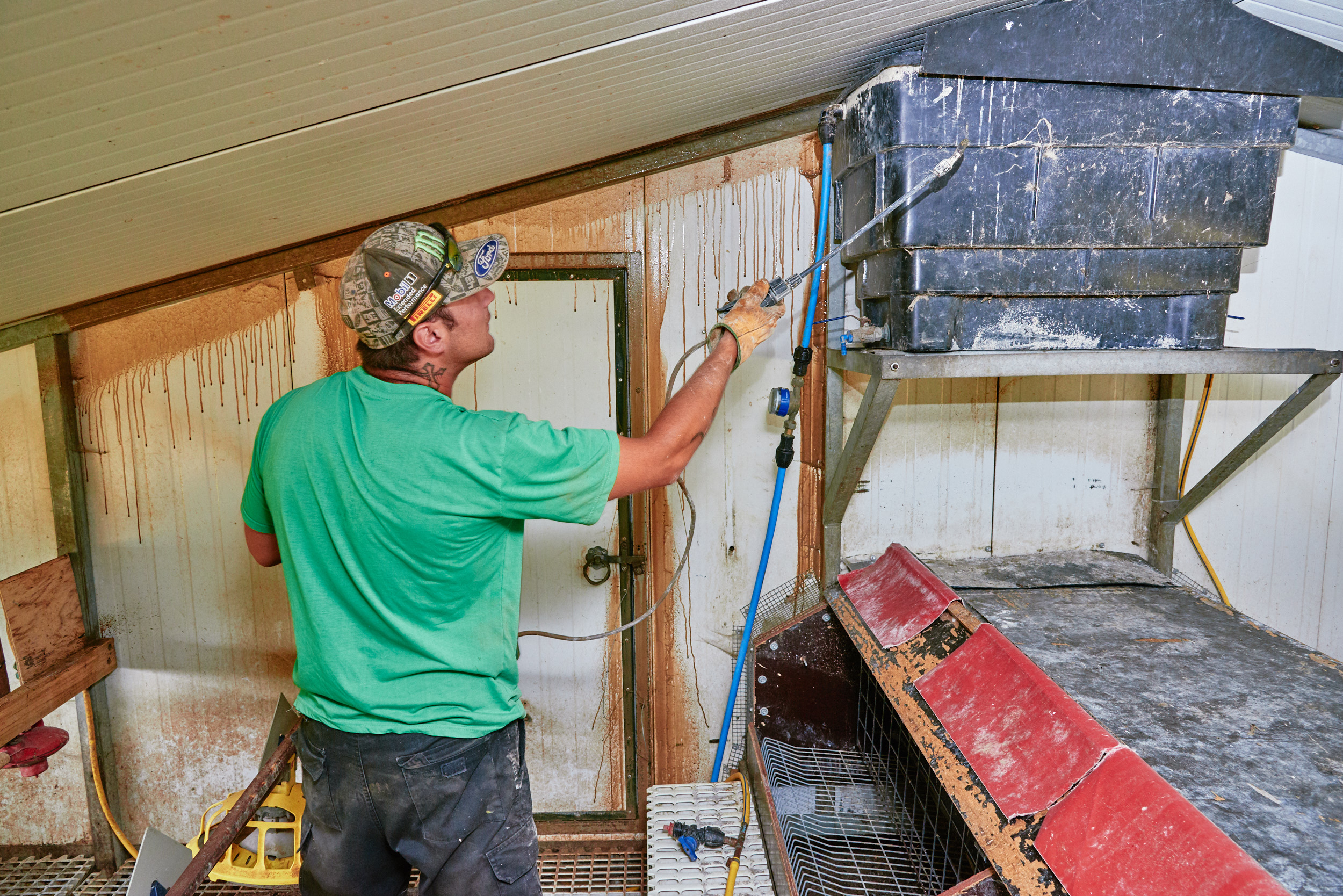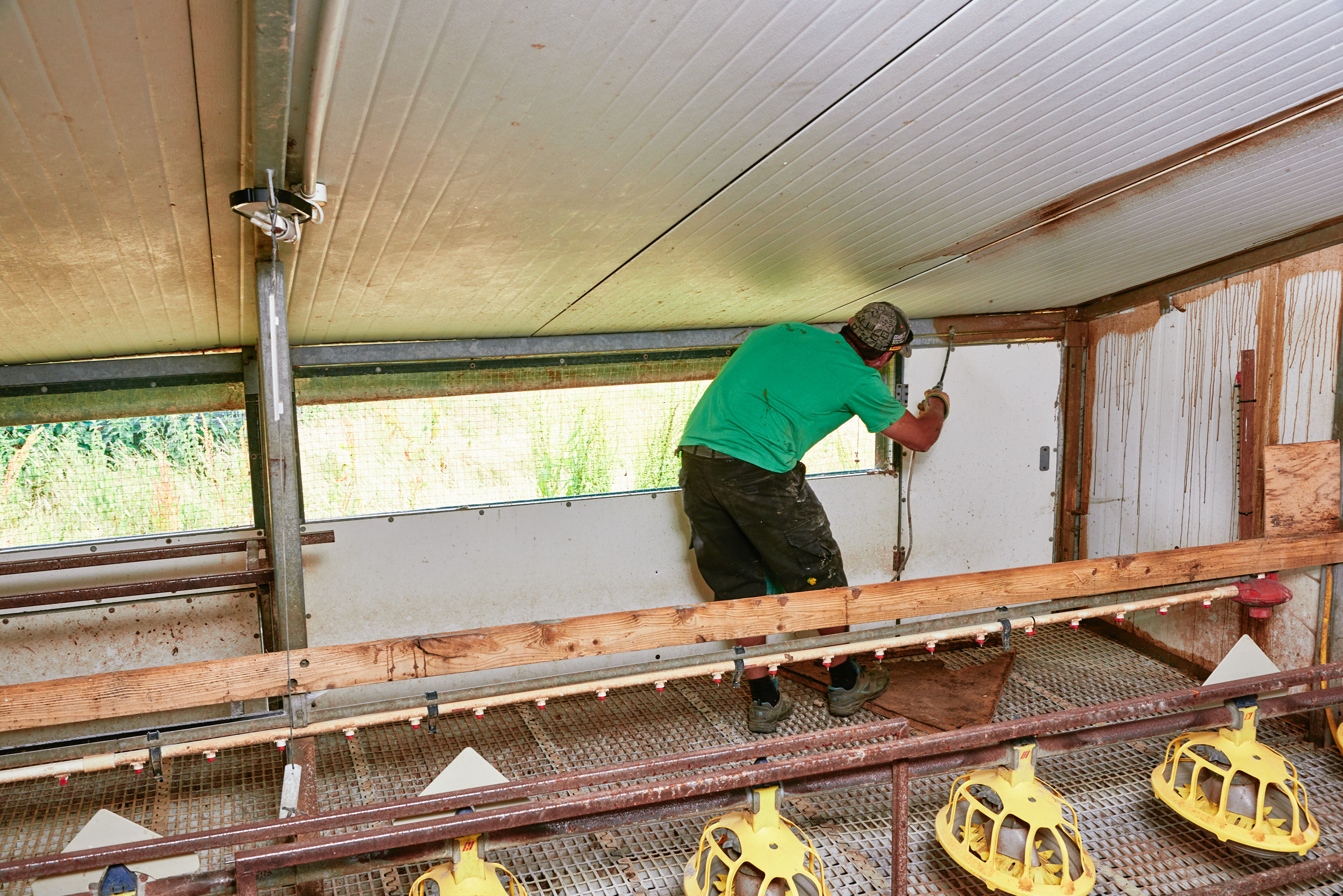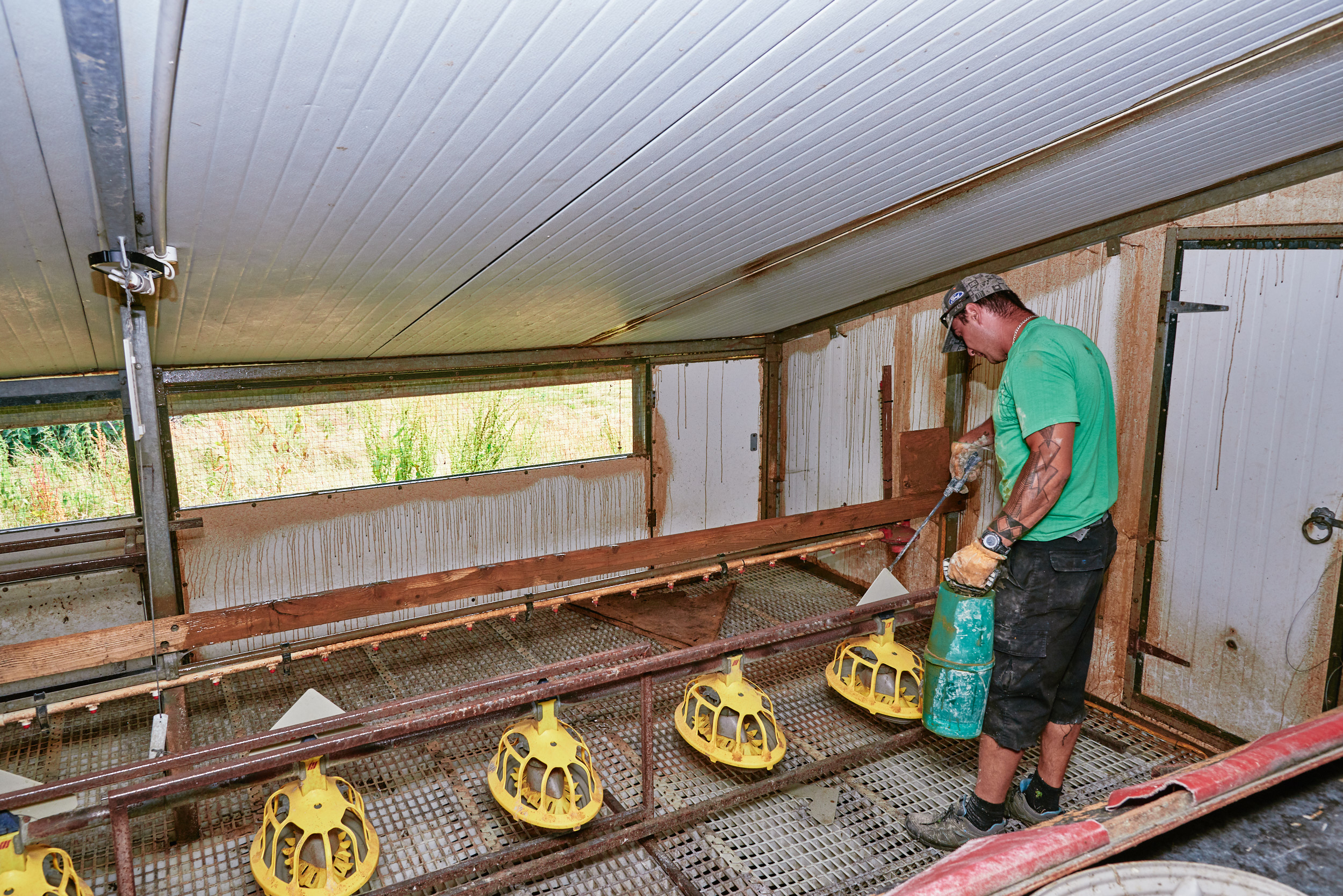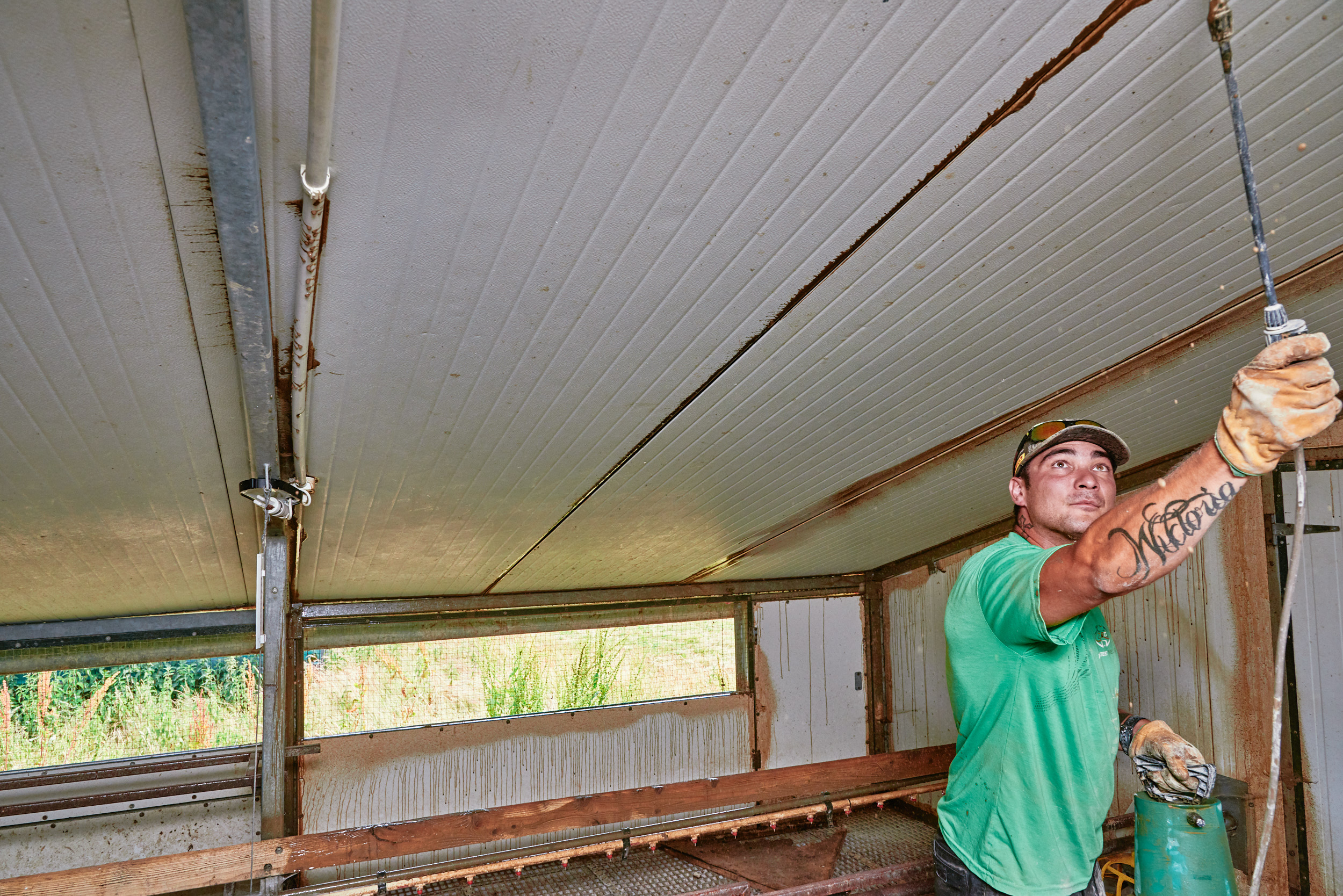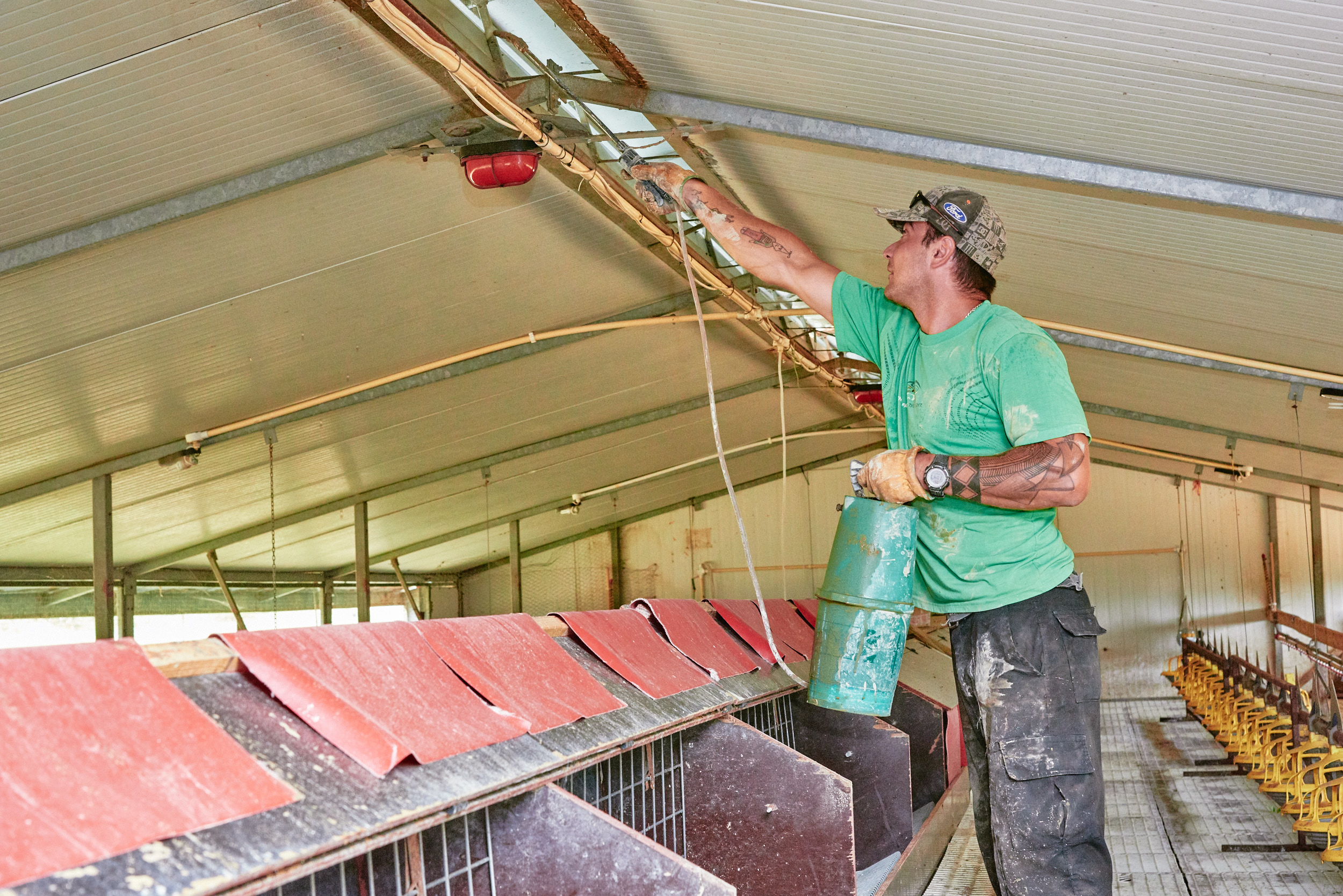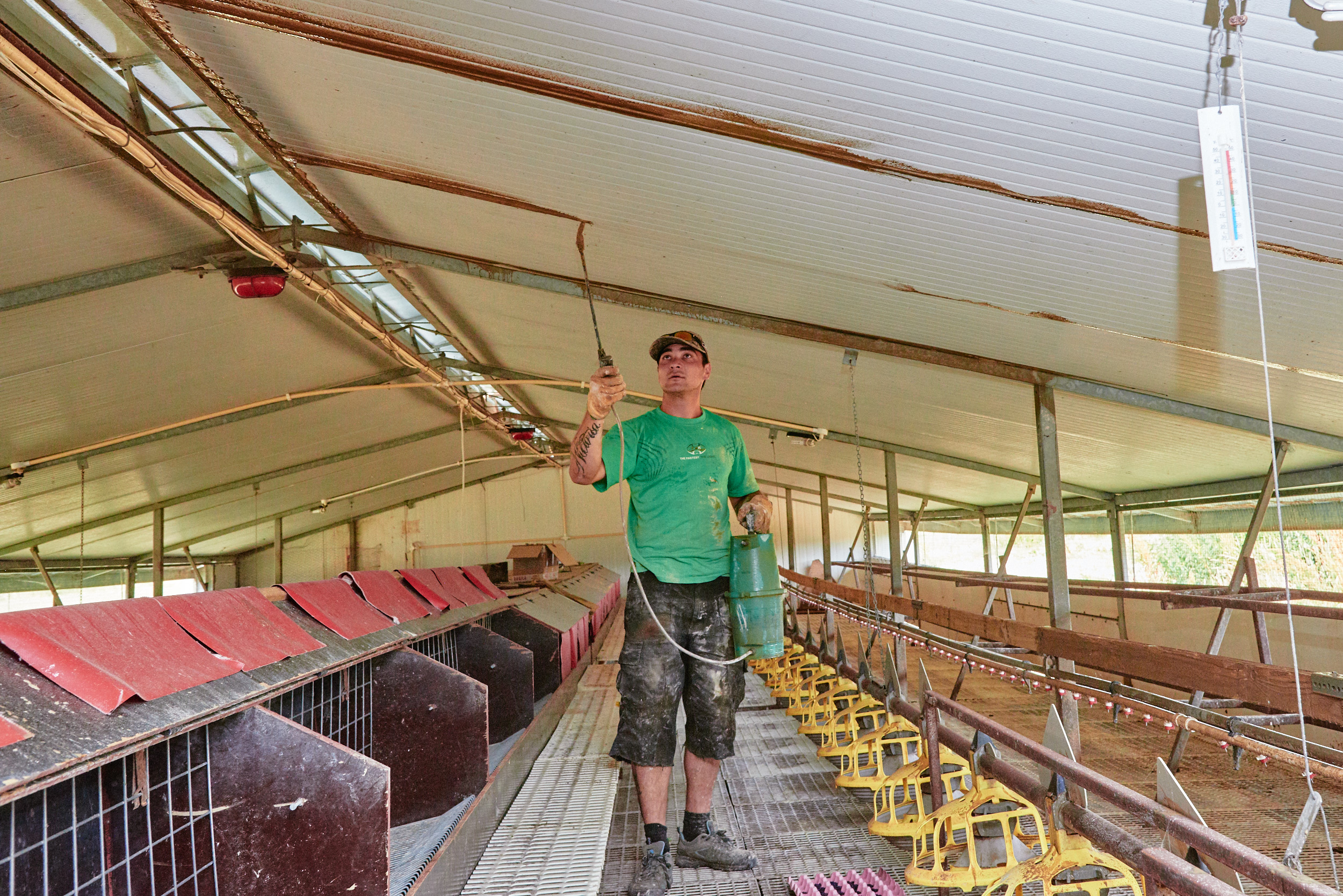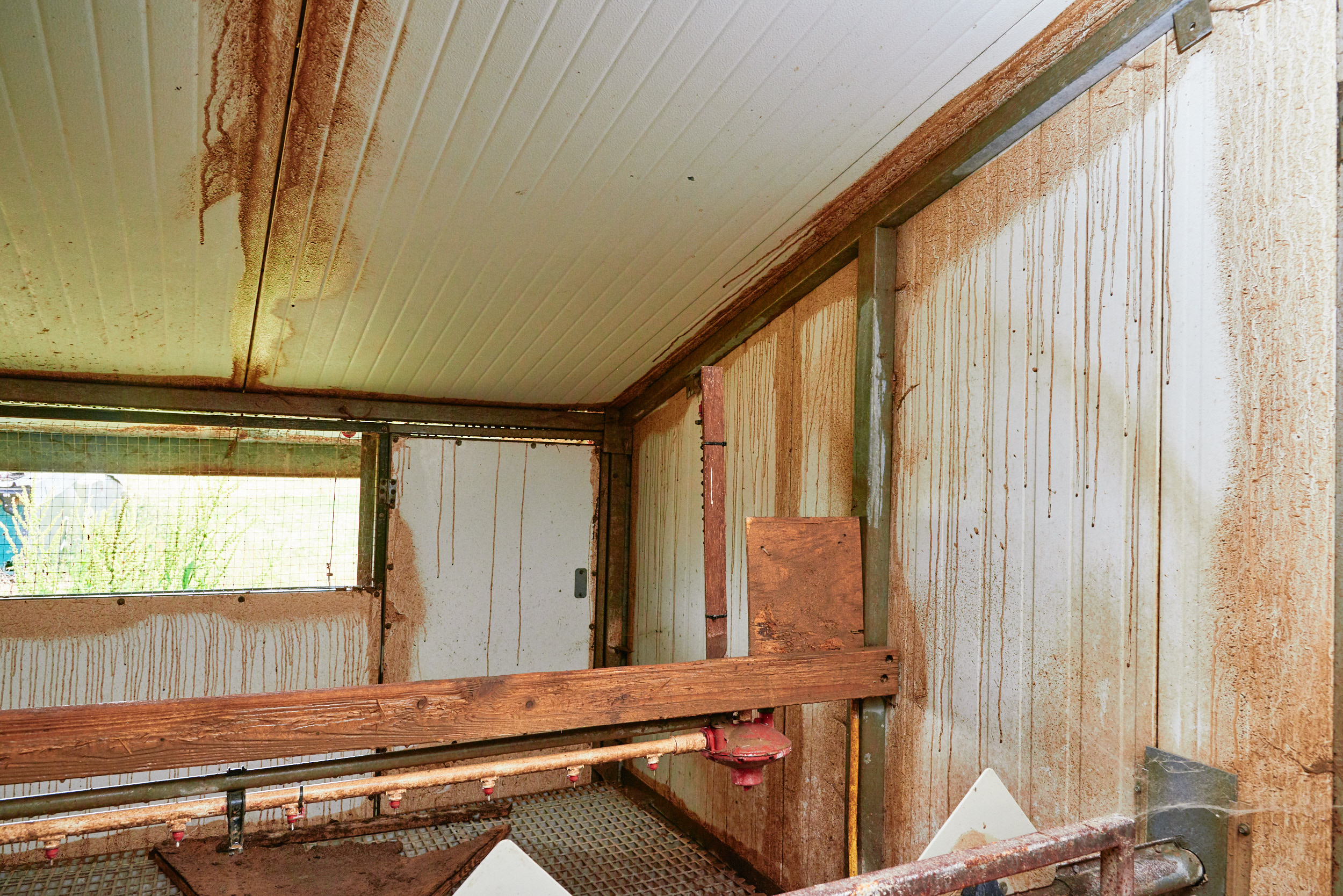Something we are always thinking about when it comes to the welfare of our chickens, is predators and, more importantly, how to guard against them!
Foxes are the obvious ones that everyone knows about, but you've also got birds of prey, badgers, even herons. But some of the worst are Red Mites which, if you don't protect against them, will feed on the blood of the birds.
These tiny parasites start off almost translucent but after a feed swell up into red coloured mites which are still only 0.7mm at their largest, making small numbers of them incredibly hard to spot. They live in cracks and crevices and can multiply at an astonishing rate, particularly during the warmer months.
While they're not fatal like a fox, they can in large numbers cause discomfort, poor health and ultimately lower egg production. So taking measures to stop them getting anywhere near our birds is a priority.
As an organic egg farm, we don't use any chemicals, pesticides or insecticides on our land, so instead we use a diatomaceous earth powder - a 100% natural silicate which comes from the fossilised remains of ancient hard-shelled algea found in river beds.
This works because at a microscopic level the powder is incredibly absorbent. It attacks the parasite's exoskeleton by absorbing the oils and fats from the cuticle, effectively causing it to dry out and die. Its sharp edges are abrasive, which speeds up the process and, because it works mechanically rather than chemically, they can't build up an immunity to it.
So, after a shed's been moved and thoroughly cleaned, it get's sprayed to guard against Red Mites.
The powder gets thoroughly mixed with water and then transferred into a container so it can be sprayed by hand. Any crack or crevice creates an ideal environment for them to lay their eggs, so we go over every inch of each chicken shed making sure that every seam gets thoroughly coated with the mixture.
As well being applied to every nook and cranny of the hen house we also use it in the hen's scratch areas where the chickens take dust baths to coat and condition their feathers. Usually one application is all it takes, but we're always on the look out and, if necessary, we sprinkle more powder in the nest boxes which usually takes care of the problem.
It's a messy, messy job which takes at least a day to get done properly.
It's not pretty, and when it's dry it can look like we simply don't take care of our sheds! But it is incredibly effective, and it is essential to guarding against what is possibly the most pervasive predator our chickens face.






